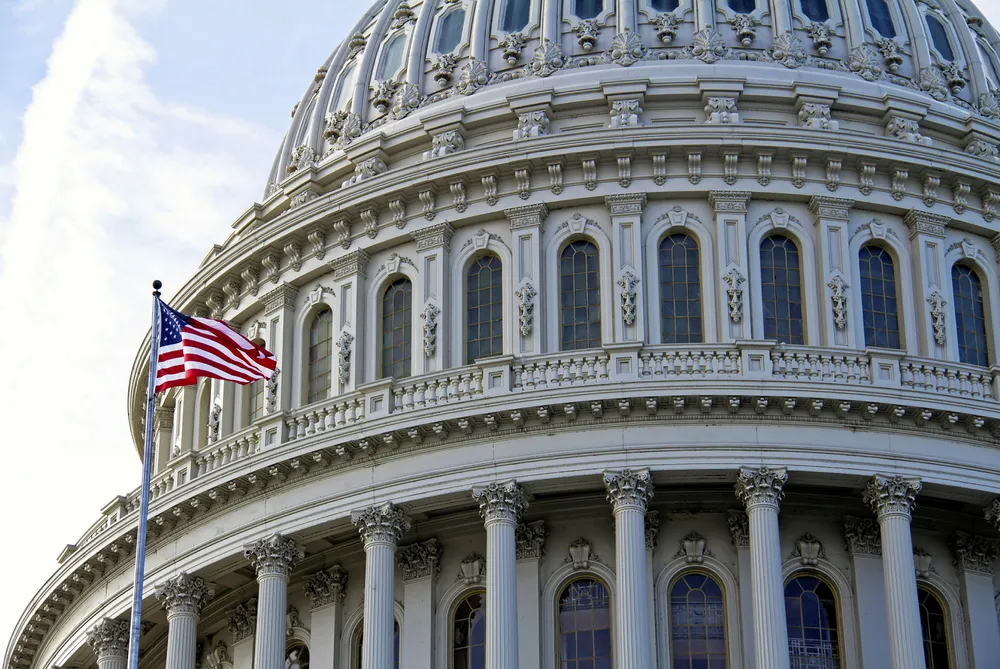Trump's threat to dismantle US climate law could fall short even with Republican House control
President-elect may have to settle for clawing back funds rather than full repeal of landmark Inflation Reduction Act

US President-elect Donald Trump’s ability to carry through his campaign threat to dismantle the country’s landmark climate law could partly hinge on whether Republicans retain control of the lower house of Congress.
By Thursday morning in the US, 26 of 435 seats were still undecided in the House of Representatives where the party entered Tuesday elections with a narrow 222-210 majority; three seats were vacant. Republicans had picked up two seats thus far.
Trump, who won a second, non-consecutive four-year White House term – only the second candidate in US history to do so – will take office on 20 January.
Republicans regained control of the Senate with at least 52 of 100 seats with races too close to call in Arizona, Michigan, Nevada, Pennsylvania, and Wisconsin.
'Promises made'
Trump will interpret his victory, which was broader in scope than polls forecast, as an electoral green light to redirect federal energy policy which under outgoing President Joe Biden, was anchored by the 2022 Inflation Reduction Act (IRA). It narrowly passed Congress with Democratic votes.
“America has given us an unprecedented and powerful mandate,” Trump told supporters early today. “I will govern by a simple motto: Promises made, promises kept.”
During the campaign, he vowed to terminate IRA on “day one” in office, but in recent weeks adopted a softer tone perhaps in realisation he could not do so with an executive order. Terminating it would require a new law.
Even if Republicans obtain control of Congress there doesn’t appear to be appetite within the party for full IRA repeal.
House Speaker Mike Johnson, the chamber’s senior Republican, in September said it would not be possible to “blow up” IRA and instead, urged his party to use a “scalpel, not a sledgehammer” with clean energy tax credits, noting some have helped the country.
One month earlier, 18 House Republicans in a letter to Johnson warned that “prematurely” rescinding the credits would impair private investments and waste public money.
“A full repeal would create a worse-case scenario where we would have spent billions of taxpayer dollars and received next to nothing in return,” they wrote.
The letter further noted the credits have “enjoyed bipartisan support historically” while spurring innovation, incentivising investment, and creating good jobs in many parts of the country – “including many districts represented by members of our conference.”
Oil industry executives, who have Trump’s ear, are also urging him to retain biofuel, carbon capture, critical minerals, manufacturing, and nuclear tax credits, which would protect their companies' existing and planned investments.
There is also bipartisan support for supply chain manufacturing credits aimed at encouraging companies to re-shore production capacity for clean energy and dual-use commodities and products.
More likely is that Republicans would take aim at credits for electric vehicles, a frequent Trump target, who falsely claimed President Joe Biden’s administration was forcing Americans to buy them through federal mandates. He also asserted EVs will destroy the US automotive industry.
Unspent money at risk?
Trump has vowed to rescind not only all unspent IRA funding, but also money available in the $1.2trn infrastructure law of 2021 and $280bn CHIPS and Science Act of 2022 that assists domestic research and production of semiconductors. Both had bipartisan support.
This is in recognition that his administration would have limited opportunities to claw back funds already spent under IRA.
“This would require the termination of individual award agreements, which can only occur in limited circumstances,” said a paper released in September by Columbia University’s Sabin Centre for Climate Change Law.
“Termination of awards based solely on a change in administration priorities could be challenged in source and those challenges would have a high probability of success,” it added.
The amount of potential unspent IRA funding when Biden leaves office is unclear, perhaps $24bn or more, according to the paper.
Trump could also seek to re-direct or withhold certain unspent funds, although no more than 10% allocated to any IRA programme could be transferred to another use. Such a move would likely face court challenges.
Another possible target is the Department of Energy’s Loan Programmes Office, which provides project debt financing. IRA increased LPO’s existing lending authorities by more than $100bn and created a new loan programme. Total IRA appropriations for those purposes are about $8.6bn.